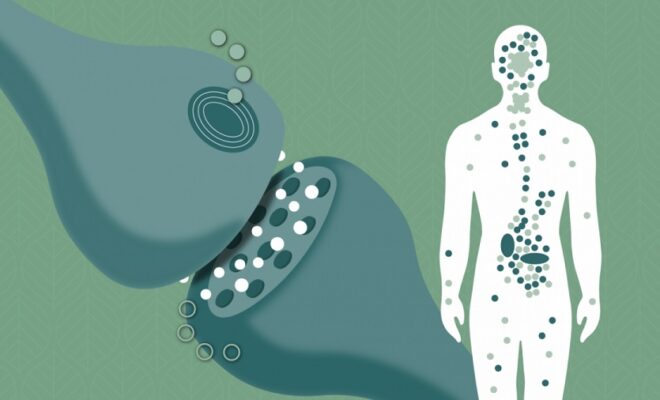The Endocannabinoid System: Balancing Act of Life

The human body is a complex network of systems working harmoniously to maintain health and wellness. The endocannabinoid system (ECS) stands out as a vital yet often overlooked component. Discovered in 1988, the ECS is present in all people from birth and plays a crucial role in maintaining homeostasis or balance within the body. This article delves into the fascinating world of the endocannabinoid system, its function, and the importance of supplementing it with exogenous endocannabinoids to combat deficiencies that arise over time. For practical applications, visiting a cannabis clinic Australia can provide personalized advice and treatments to help maintain this essential equilibrium.
Discovery and Basics of the Endocannabinoid System
The journey into the intricacies of the ECS began in 1988 when researchers identified it as a previously unknown signaling network. This groundbreaking discovery unveiled a system widespread throughout the human body, consisting of endocannabinoids (molecules produced internally), receptors, and enzymes.
Endocannabinoids: These are naturally occurring compounds similar to cannabinoids, the active components in cannabis plants. The primary endocannabinoids are anandamide (AEA) and 2-arachidonoylglycerol (2-AG). They are synthesized on demand and act locally before being broken down by enzymes.
Receptors: The ECS primarily involves two types of receptors—CB1 and CB2.
-
CB1 receptors are predominantly found in the brain and central nervous system, influencing pain, mood, and memory.
-
CB2 receptors are present in the immune system and peripheral tissues, playing a role in inflammation and immune responses.
Enzymes: These are responsible for synthesizing and degrading endocannabinoids, ensuring that their levels remain balanced. The main enzymes are fatty acid amide hydrolase (FAAH), which breaks down AEA, and monoacylglycerol lipase (MAGL), which is responsible for degrading 2-AG.
The Role of the ECS in the Body
The primary role of the endocannabinoid system is to maintain homeostasis, ensuring that the internal environment of the body remains stable despite external changes. The ECS influences a myriad of physiological processes, including mood regulation, appetite, pain sensation, inflammation response, and even immune system function.
By binding to their receptors, endocannabinoids help regulate the activity of various systems:
-
Nervous System: Modulating neurotransmitter release to affect pain, stress, and mood levels.
-
Immune System: Regulating immune responses and inflammation.
-
Digestive System: Influencing hunger and metabolism.
Causes of Endocannabinoid Deficiency
Despite its efficiency, the ECS can become imbalanced due to various factors, leading to endocannabinoid deficiency. This condition can result in several adverse physiological effects, often manifesting as health issues.
1. Chronic Stress: Prolonged periods of stress can disrupt the balance of endocannabinoids, reducing their effectiveness in maintaining homeostasis.
2. Poor Diet: A diet lacking essential fatty acids, vitamins, and minerals can impair the body’s ability to produce endocannabinoids effectively.
3. Lifestyle Factors: Lack of exercise, poor sleep quality, and substance abuse (including excessive alcohol consumption) can adversely affect ECS performance.
4. Genetic Factors: Some individuals may have a genetic predisposition to produce fewer endocannabinoids or have less responsive receptors.
The consequences of endocannabinoid deficiency can include chronic pain, mood disorders, weakened immune function, and digestive issues, among others.
Supplementing with Exogenous Endocannabinoids
To mitigate the effects of endocannabinoid deficiency, introducing exogenous endocannabinoids—cannabinoids from natural plants—is often beneficial. These external compounds can interact with the ECS, promoting balance and helping to alleviate the symptoms associated with its dysfunction.
Cannabinoid Sources:
-
Cannabis Plants: The cannabinoids tetrahydrocannabinol (THC) and cannabidiol (CBD) found in cannabis plants are the most well-known exogenous endocannabinoids.
-
THC: Primarily binds with CB1 receptors, affecting mood, appetite, and pain sensation. Although psychoactive, it can be highly effective in pain management and stimulating appetite.
-
CBD: Non-psychoactive and interacts with both CB1 and CB2 receptors, thus offering benefits in inflammation reduction, anxiety relief, and overall homeostasis without the high associated with THC.
-
Non-Cannabis Plants:
-
Echinacea: Contains N-alkylamides, which interact with the CB2 receptors.
-
Turmeric: Curcumin, an active ingredient in turmeric, influences the endocannabinoid system by increasing the endocannabinoid tone.
Practical Applications and Benefits
Exogenous endocannabinoids have gained popularity due to their broad range of health benefits. Here’s how they help in achieving homeostasis:
1. Pain Management: Cannabinoids are increasingly used to manage chronic pain by reducing inflammation and modulating pain signals in the nervous system.
2. Mental Health: CBD especially has shown promise in alleviating anxiety and depression by influencing serotonin receptors and promoting neurogenesis.
3. Immune Function: By reducing excessive inflammation and modulating immune responses, exogenous cannabinoids help in maintaining a balanced immune system.
4. Neurological Health: THC and CBD have neuroprotective properties that are beneficial in managing conditions like multiple sclerosis and epilepsy.
5. Metabolic Health: Cannabinoids influence appetite and metabolism, potentially aiding in weight management and overall metabolic health.
Given the scope of benefits, it’s no surprise that the interest in the natural supplementation of exogenous cannabinoids is steadily growing.
Conclusion: Balancing Act of Life
The discovery of the endocannabinoid system opened new avenues for understanding human health and maintaining balance in our bodies. Present from birth, this vital system relies on a delicate balance of endocannabinoids to function correctly. However, life’s stresses, poor lifestyle choices, and genetic factors can all contribute to endocannabinoid deficiency, throwing our bodies out of balance.
In response, supplementing with exogenous endocannabinoids from natural plants becomes crucial to restore this balance. Whether from cannabis or other botanicals, these compounds offer a natural way to support the ECS in maintaining homeostasis, thereby promoting overall well-being.
As research continues to uncover more about the ECS and the role of exogenous cannabinoids, there is hope for even more significant advancements in health management. For now, understanding and utilizing the benefits of our internally and externally derived endocannabinoids allows us to take a proactive approach, maintaining the harmony essential to our health.
Living in a state of balance is a lifelong endeavor, and the endocannabinoid system proves to be a critical player in this intricate dance. Through mindful lifestyle choices and the thoughtful use of natural supplements, we can support this extraordinary system in its mission to keep us balanced and healthy.







